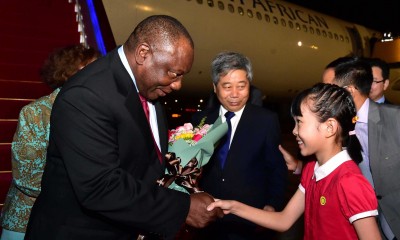While the motivation behind Chinese involvement remains primarily economic, the growing exposure of its interests to the vagaries of African politics and pressures to demonstrate greater global activism are bringing about a reconsideration of Beijing’s approach to the continent.
China faces threats on three fronts to its standing in Africa: reputational risks derived from its association with certain governments; risks to its business interests posed by mercurial leaders and weak regulatory regimes; and risks faced by its citizens operating in unstable African environments. Addressing these concerns poses challenges for Beijing, whose desire to play a larger role in security often clashes with the complexities of doing so while preserving Chinese foreign policy principles and economic interests on the continent.
The result is increasing Chinese involvement in African security through greater activism in multilateral peacekeeping operations, which received further support with the announcement of the China-Africa Cooperative Partnership for Peace and Security in 2012.
This aspirational commitment to a more institutionalised form of involvement remains problematic, however, because of China’s uncertainty as to the implications for its established interests and an underlying ambivalence towards the normative dimensions of the African Peace and Security Architecture. These concerns reflect wider debates in China as to the implications of its role in existing regional and global governance structures.
For more on this topic, click here to read SAIIA Senior Research Fellow Chris Alden’s new paper “ Seeking security in Africa: China’s evolving approach to the African Peace and Security Architecture” that he recently produced for the Norwegian Peacebuilding Resource Centre (NOREF).







